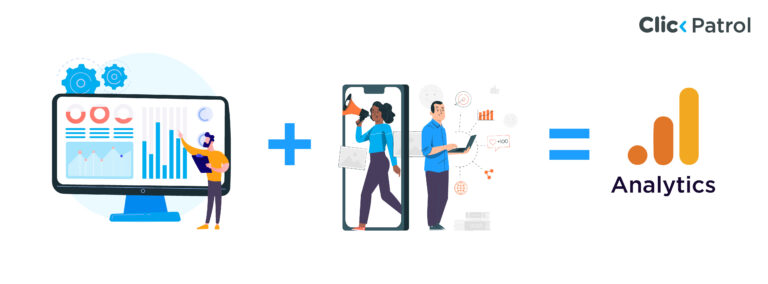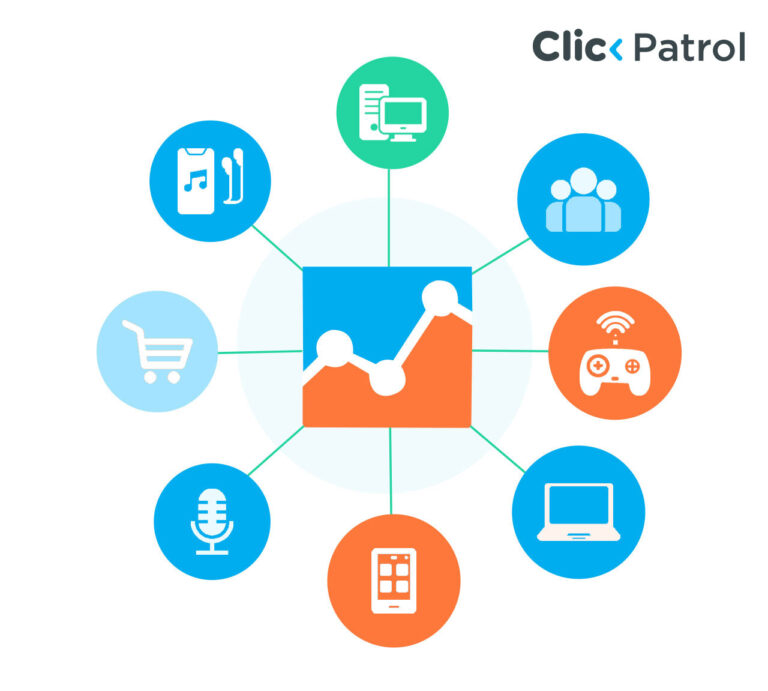
Click Fraud Prevention Case Studies
Abisola Tanzako | Sep 26, 2024

Table of Contents
Click fraud prevention case studies explore the impact of click fraud prevention in safe guarding ad campaigns.
Over the years, digital advertising has grown to be a multi-billion-dollar market, which has given rise to the advent of click fraud. As businesses increasingly rely on pay-per-click (PPC) campaigns to drive traffic and generate leads, the threat of fraudulent clicks can undermine their efforts and drain their budgets. Between 2023 and 2028, it was predicted that the global expenditures associated with digital advertising fraud would rise from 88 billion to 172 billion U.S. dollars.
The losses incurred due to click fraud have made businesses adopt strategies that would prevent it. Click fraud is the fraudulent act of manipulating pay-per-click (PPC) advertising campaigns. It involves the generation of fake traffic on a website through fraudulent clicks. This activity is usually carried out by individuals or automated bots, known as click bots. This article looks at case studies of how businesses were able to combat the threat of click fraud.
Click fraud prevention case studies
Some case studies of click fraud prevention include:
1. Oliverson & Huss
Oliverson & Huss, a criminal defense firm with offices in Arizona, competes in the US legal market. Keywords like “lawyer” and “attorney” are among the top 6 most expensive on average; therefore, a significant return on investment was expected. However, with a $700 daily budget, they consistently went over $2000 with few conversions. The conclusion was that there were other factors at play besides underwhelming campaigns.
In addition, the firm was also being bombarded with calls from automated bots, which was annoying and signified wasted money on ads. Many clicks were quickly observed as fraudulent, and many were automatically blocked. The firm’s monthly report between March and June 2021 indicated that among the majority of the fraudulent clicks, 75% came from certain users clicking the ad multiple times within a set time frame.
It was also observed that of all the fraudulent clicks received for the given period, a substantial number were coming from mobile devices. These observations then implied a strong case of competitor fraud. This issue is of concern because it is only sometimes the case in such a demanding and competitive service. Equipped with this information, the marketing team sought the help of a click fraud protection program, and within minutes, the program equipped with automatic blocking could detect and prevent fraudulent clicks.
The firm noticed a decline or total absence of bot calls and was confident its budget had been effectively used to target potential clients. In a short time frame, stopping the multiple clicks was to save $6,000.
2. Vitabrid Japan
A direct-to-consumer (D2C) venture firm, Vitabrid Japan focuses on creating and marketing skin care and nutritional goods. Using a subscription business model, they allow clients to make recurring purchases of their items. The company faced the challenge of unauthorized resale of its products, especially during the initial campaign period.
Resellers would purchase their products at reduced prices and even advertise them using affiliate advertising URLs, undermining the effectiveness of Vitabrand’s business model. To address this issue, Vitabrand Japan used fraud detection software to identify users who make repeated purchases quickly, including organized list-style reselling.
Since implementing the click fraud detection software, when possible reselling patterns are found, Vitabrid Japan has taken action, canceling orders and stopping product shipment. Since they routinely reject orders thought to be from resellers, the overall number of resale events has gradually decreased. Although there has been a rise in consumer requests about order cancellations, Vitabrid Japan responds to them appropriately, acknowledging that not all orders are legitimate and that some might be from prospective resellers.
They also add notes to customer support history to ensure proper handling of detected cases. Overall, Vitabrand Japan has been satisfied with the click fraud prevention software, as it has enabled improved detection accuracy. To speed up the process from detection to blocking, they are also looking into automation integration with chatbots and cart systems.
3. Conservio
Conservio, a nature-positive travel agency, is passionate about offering tourists the best of Africa’s conservation travel experiences. Despite having completely optimized campaigns, the company has been facing excessive ad spending and relatively low conversion rates over the past few months. The company suspected competitors were either checking their pricing, scraping their websites, or deliberately sabotaging their campaigns.
Conservio signed up for ClickPatrol, where they immediately signed up for a two-week demo, and some observations were made. One of the major challenges was a high level of non-human traffic. It was observed that Conservio was experiencing up to 14% of non-human traffic. After becoming pro members of ClickPatrol, Conservio began noticing positive changes, with up to 17% savings on their campaigns and a 14% increase in cleaner traffic.
4. SeniorCareClicks
SeniorCareClicks is a marketing agency specializing in marketing services, particularly for senior care businesses. This company focuses on providing solutions in the marketing domain for the care industry, especially digital marketing strategy, digital marketing implementation, and marketing automation. Their challenge began when managing a simple Google Ads campaign for a senior care client at SeniorCareClicks; they then realized something was off.
Google Ads came up with a higher click-through rate for the campaign, but the conversion rate declined. This could only point to those new clicks originating from undesirable places. After using click fraud prevention software, they could recognize that they were dealing with click fraud, which constituted about 24% of the clicks on their campaigns.
With the help of the data obtained from the fraud prevention tool, they overrode all of this traffic by implementing specific rules. In a month of implementing a click fraud prevention tool, SeniorCareClicks transformed a struggling campaign into a very successful one, having lifted the general conversion rate by a whopping 30%.
Click fraud prevention techniques.
Some click fraud prevention techniques can be seen below:
1. Implement IP exclusions
This method involves blocking fraudulent IP addresses from accessing the advertisements. The majority of invalid clicks originate from particular IP addresses or groups of addresses associated with click farms, bots, or other fraudulent sources.
2. Implementing fraud prevention software
One of the most important ways to combat click fraud is to use specialized prevention software. By tracking ad activities, these solutions can quickly identify and stop fraudulent clicks, protecting marketing return on investment. By identifying and blocking non-converting clicks, these advanced systems increase return on investment (ROI) by reducing unnecessary advertising expenditure.
3. Monitoring click patterns
Click patterns can be used to inspect the possible click fraud scenarios by analyzing the frequency of the click activity. For instance, a significant rise in clicks originating from a particular area of the world or between certain hours can be suspect. With this, you can actively prevent unwanted traffic by tracking its patterns.
4. Using CAPTCHA verification
Applying CAPTCHA to your landing pages can be an effective way of ascertaining that the clicks are from real users, not bots. This basic check can dramatically minimize fraudulent clicks or keep them minimal.
Collaborating with trusted advertising networks
Working with reputable ad networks is essential to preserving the integrity of pay-per-click advertising contracts. As go-betweens, legitimate networks ensure that communications between publishers and advertisers are clear and understandable.
Within these networks, revenue-sharing arrangements motivate publishers to display advertisements only to legitimate clicks, so advertisers only pay for legitimate clicks. Reputable networks that function as publishers and middlemen, such as Yahoo! Search
Marketing and Google’s AdWords/AdSense, adeptly handle their dual duties. Their participation guarantees that internet advertising campaigns have legitimate traffic and transparency. These platforms also have fraud detection and prevention features that users can enable.
Key takeaways for effective click fraud prevention
Fraud prevention is a continuous problem that needs to be addressed with collaboration, ingenuity, and close observation. Successful case studies can help businesses implement effective measures to safeguard their advertising investments and ensure the integrity of their campaigns. One essential takeaway from the study of digital advertising is the importance of staying up to date with industry advancements to preserve credibility and confidence in the digital advertising sector.
This proactive strategy is essential. By using new trends and strategies, stakeholders can stop click fraud and maintain the right atmosphere for all clients and partners. Preventing click fraud requires a multifaceted strategy that combines cutting-edge technology, close observation, and calculated interventions.
FAQs
Q. 1 Can click fraud be eliminated?
Eliminating click fraud completely can be a herculean task. However, using the right tools and techniques can go a long way toward curbing its threats.
Q. 2 Can businesses seek the services of 3rd party click fraud protection software?
Yes, businesses have engaged the services of click fraud protection software, Such as ClickPatrol, to carry out fraud detection and protection services.
Q. 3 Why is collaboration important in preventing click fraud?
Collaboration among stakeholders, businesses, ad networks, and software providers is crucial to detect, prevent, and respond effectively to new fraud tactics, ensuring a fair and transparent digital advertising environment.





